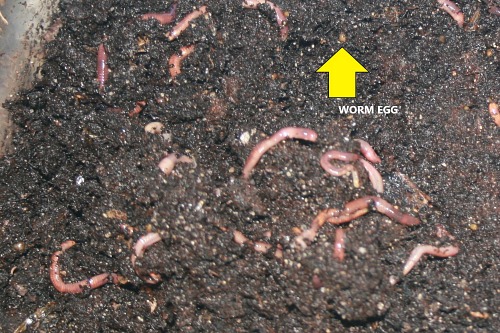Lake Hickory Bait: Trusted Supplies for Every Level of Fishing
Lake Hickory Bait: Trusted Supplies for Every Level of Fishing
Blog Article
Unlock the Secrets of Red Wigglers: Your Overview to Composting Success
The combination of red wigglers right into composting practices offers a considerable opportunity for boosting soil health and wellness and advertising sustainability. Recognizing their requirements and behaviors is vital for enhancing their potential, from establishing up an appropriate worm bin to feeding them the ideal products.

What Are Red Wigglers?
(Lake Hickory Bait)Red wigglers, medically called Eisenia fetida, are a species of earthworm mostly utilized in composting as a result of their exceptional capability to disintegrate natural matter successfully. These worms are characterized by their reddish-brown pigmentation and a fractional body, typically measuring in between 3 to 4 inches in length. Unlike other earthworm varieties, red wigglers thrive in rich, organic environments, making them perfect for vermicomposting systems.
Indigenous to The United States And copyright, they are typically found in decomposing fallen leaves and compost heap, where they play an essential function in nutrient recycling. Their adjustment to living in a wet, aerobic atmosphere allows them to consume big quantities of organic waste, damaging it down into nutrient-rich spreadings that boost soil wellness.
Red wigglers duplicate rapidly, with a single worm capable of producing a number of cocoons each week, each including several hatchlings. Recognizing the biology and behavior of red wigglers is essential for optimizing their capacity in composting applications.
Advantages of Utilizing Red Wigglers
Utilizing the power of red wigglers in composting provides various benefits that boost dirt health and promote sustainable waste administration. These impressive microorganisms effectively break down raw material, transforming kitchen scraps and yard waste right into nutrient-rich vermicompost. This ended up product is incredibly advantageous for plant growth, as it improves soil framework, enhances moisture retention, and improves nutrition accessibility.

(Red Wiggler Express)Furthermore, the visibility of red wigglers in your composting system can increase the composting process, producing premium compost in a fraction of the time compared to standard techniques. The castings generated by these worms are likewise bristling with beneficial bacteria that further enhance the soil ecosystem.
Establishing Your Worm Container
Producing an effective worm container is an uncomplicated process that can substantially improve your composting efforts. The primary step is selecting an ideal container. Worm containers can be made from plastic storage space containers, wooden boxes, or commercially offered worm bins. Make get more certain the bin has adequate drain and air flow openings to keep optimal dampness degrees and air flow.
Next, prepare the bed linens product, which serves as the worms' environment. A mix of shredded paper, cardboard, and coconut coir works well, offering a comfortable setting for the worms.

Feeding Your Red Wigglers
To make sure the health and performance of your red wigglers, it is vital to provide them with a well balanced diet regimen that meets their nutritional demands. Red wigglers grow on a varied array of natural products, which not just supply needed nutrients but also advertise efficient composting.
Begin by integrating kitchen scraps such as veggie peels, fruit cores, and coffee premises. Stay clear of citrus fruits, onions, and garlic, as these can be detrimental to worm health. In addition, introduce shredded paper, cardboard, and dry leaves to create a well-aerated atmosphere.
Feeding frequency ought to be checked; normally, worms can eat half their body weight in food weekly. It is critical to prevent overfeeding, as excess food can cause undesirable odors and bring in bugs. A great technique is to include food in percentages, enabling worms to refine it prior to introducing more.
Keeping dampness degrees is likewise vital; the bed linens must be moist but not soggy. Be certain to consistently inspect the temperature level and pH degrees of the bin to make certain an ideal setting for your red wigglers, eventually boosting their composting effectiveness.
Harvesting and Utilizing Garden Compost
An effective composting process with red wigglers culminates in the rich, dark compost called vermicompost, which can substantially improve soil health and plant development. Gathering this nutrient-dense material usually occurs every 3 to 6 months, relying on the size of your system and the quantity of organic matter being processed.
To gather, gently different the garden compost from the worms and any kind of undecomposed materials. One reliable method involves relocating the contents of the container to one side and including fresh bed linen and food to the void, motivating the worms to move. After a few days, the garden compost can be collected from the contrary side.
It is essential to make use of vermicompost correctly to optimize its advantages. By incorporating vermicompost right into your gardening regimen, you not just recycle natural waste but also produce a flourishing ecosystem that supports sustainable gardening practices.
Final Thought
In recap, red wigglers offer as exceptional allies in composting efforts, transforming natural waste right into nutrient-rich vermicompost (Red Wiggler Express). Their special organic features and efficient waste processing abilities add dramatically to lasting horticulture practices. By recognizing the optimum conditions for their habitat, feeding demands, and garden compost harvesting strategies, garden enthusiasts can improve soil health and promote plant vigor. Accepting vermicomposting not only lowers land fill waste yet additionally fosters a much more ecologically responsible strategy to horticulture and source management.
Report this page